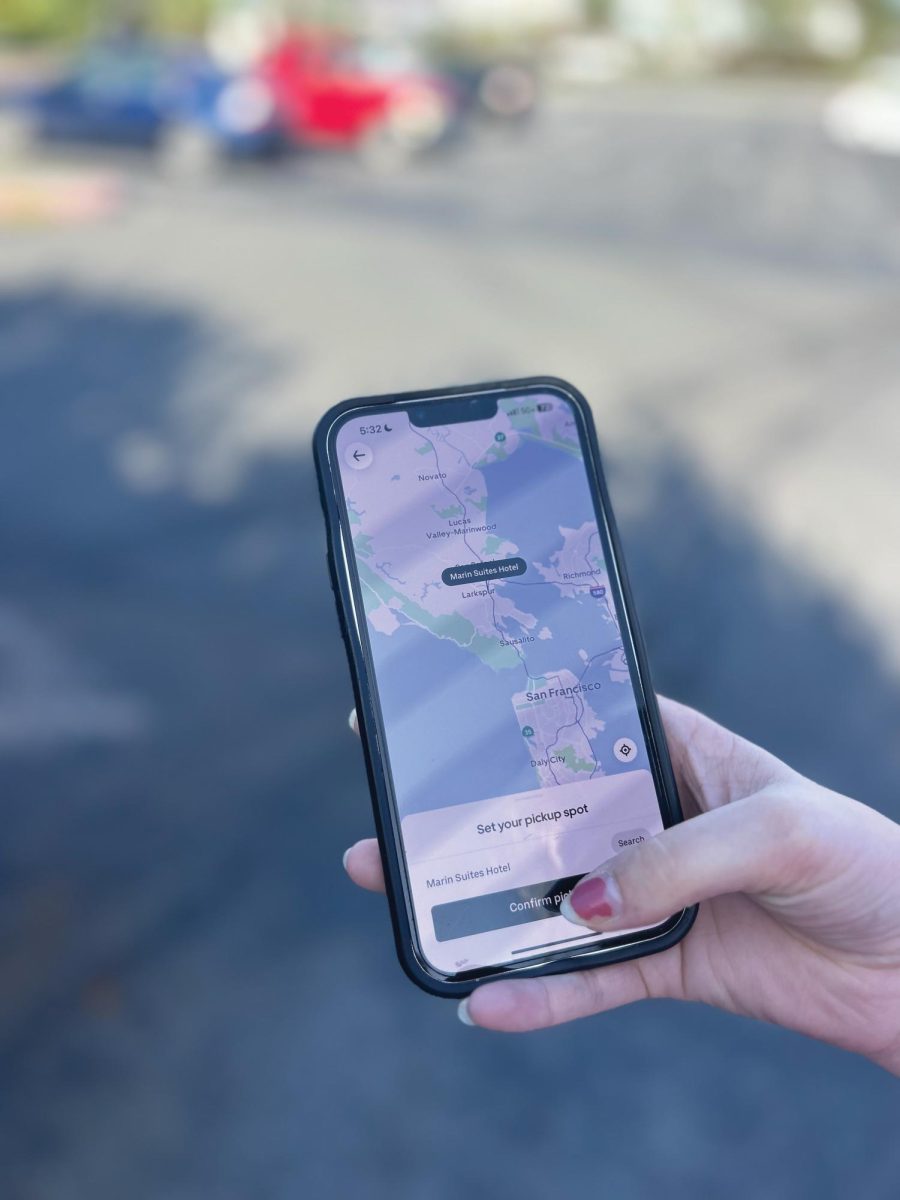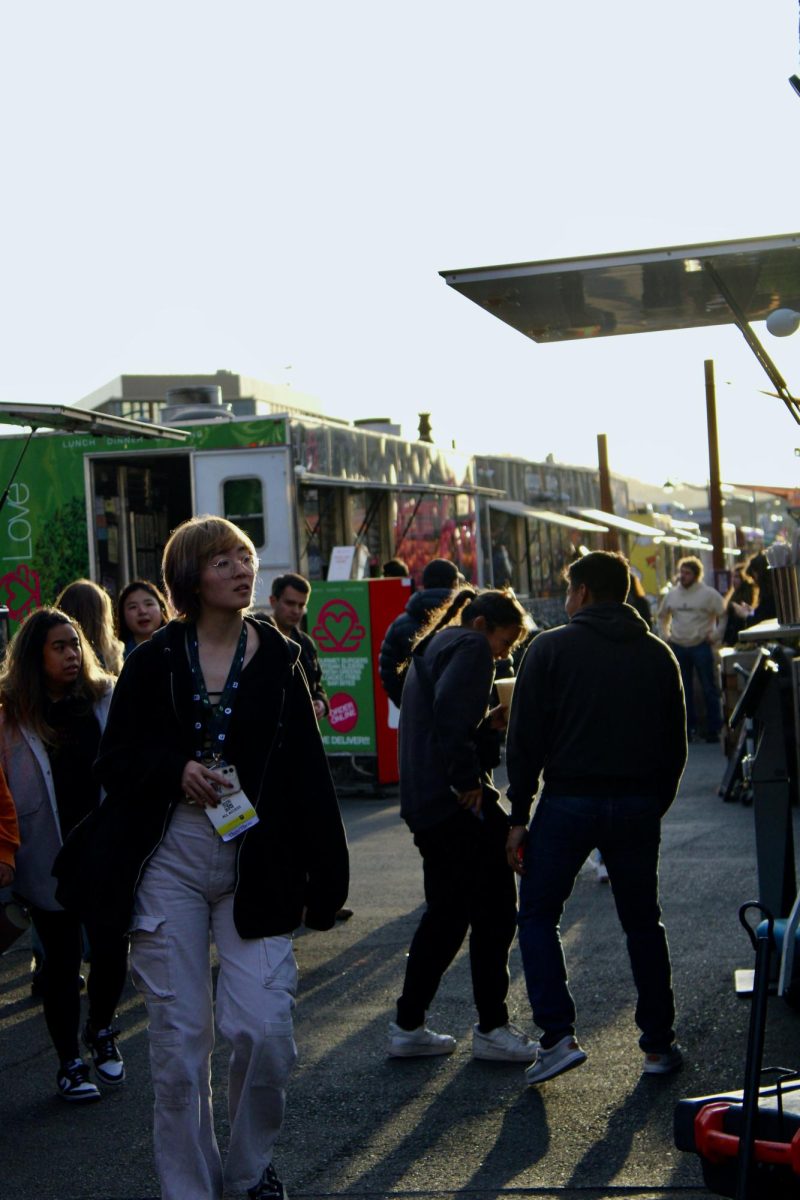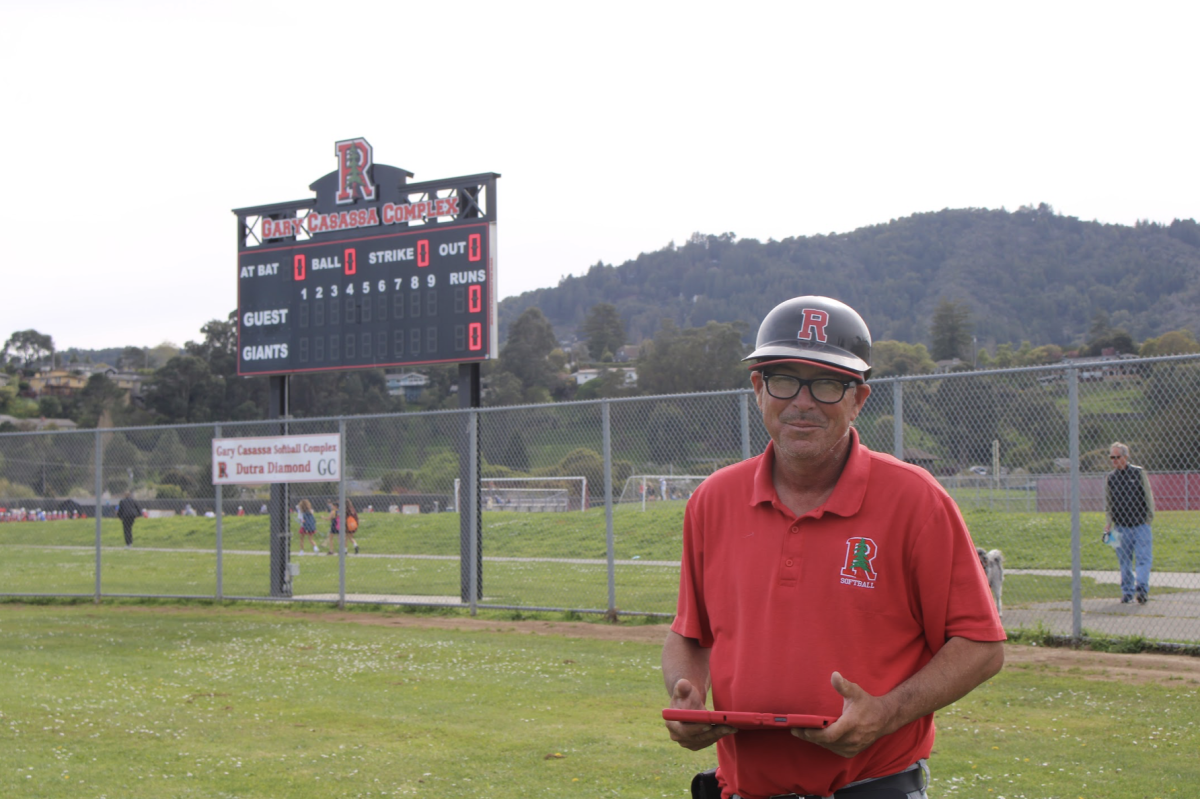
“I remember once when I was in kindergarten, someone asked me what I wanted to be when I grew up, so I said gay. I didn’t know what gay meant, but I knew that my art teacher was gay––and I loved her. I just wanted to be like her,” said junior Mia Glen.
LGBTQ (lesbian, gay, bisexual, transgender, queer/questioning) is the blanket term for all sexualities and gender identities other than heterosexual. “Coming out” is the process of announcing one’s sexual or gender identity.
Glen identifies as bisexual and is open to gender fluidity, the idea that gender falls within a spectrum.
Glen said she began to realize her sexuality in middle school, but only told those close to her. During her freshman year, she officially came out.
“The first step is coming out to yourself so you can come to terms with the facts,” Glen said. “I was then able to come out to my best friend in middle school.”
Glen said that she was never ashamed of her own sexuality; she just didn’t realize it.
“It was never denial — it was more of oblivion. I never hated being queer, but I never really wanted to be straight,” Glen said.
According to Glen, the hardest part of coming out was the buildup. Even though she knew her parents and friends would be accepting of her identity, finding the words to speak out was difficult.
“Even though I’d said it to myself, my sister, and my friends, saying it to my mother was the hardest,” Glen said. “She was the one who had always talked about my wedding day and used very heteronormative language growing up.”
Glen admitted that although she knew her mother would love her unconditionally, she was still scared to tell her.
“When you’re put in the situation where you have to change the way someone who’s known you your whole life looks at you and thinks about you, it’s very scary,” Glen said. “Although I knew my mom would love me unconditionally, it was still a scary experience telling her for the first time.”
Glen added that while her mom was accepting of her sexuality, she questioned why Glen hadn’t come out to her sooner.
“I sat her down and told her I identify as bisexual. On the ride home, my mom began to question me, saying, ‘Do you like this girl? Are your friends bisexual too? Why didn’t you tell me this earlier?’ She almost got defensive thinking she hadn’t made a safe environment for me to come out to,” Glen said.
Glen said that one thing many parents don’t understand is that while they can be as open and accepting as possible, it still takes time for their child to accept and figure out their sexuality.
Glen said that her dad was just as accepting as her mother was and didn’t make a big deal about the news.
“When I came home, my dad was half asleep and I told him, ‘Oh, I just came out to mom. I identify as bisexual.’ He then said, ‘Okay, cool. Can you hit the lights? I’m tired,’ and he went right to sleep.”
For the most part, Glen said her friends were more than accepting, but she often comes across biphobia and homophobia.
“People have told me I’m straight and I’m just looking for attention, I’m straight and I’m just a slut, or that I’m gay and I don’t want to come out,” Glen said.
Glen believes this reaction stems from peoples’ uncertainty. Because those identifying as bisexual don’t fit in “the straight community or the gay community,” they’re in more of a gray area.
Glen also admitted that she’s had some trouble with the ambiguity and indecisiveness of the bisexual identity.
“There’s more denying, more questioning, and I’ve had some trouble with that,” Glen said.
Glen said the process of coming out was made easier through the support of her friends.
“A lot of my friends from middle school have come out, so I have a solid foundation of accepting people around me,” Glen said.
Glen often feels cast into stereotypes that don’t pertain to her identity.
“I was at camp, and after people found out I was bisexual, this girl came up to me and was like, ‘Will you be my gay best friend? Can we go shopping together?’” Glen said.
Glen said that people generally don’t know how to react when they can’t put a specific label on bisexuality.
Sophomore Zach Morris identifies as gay, but, like Glen, believes that sexuality is often more complicated than what labels can define.
“My sexuality for me is kind of an open thing. It wasn’t at first––obviously it took me some time to figure out what was going on and if I actually was gay,” Morris said. “I still don’t completely know, and I don’t think it’s something that anyone can really figure out. I think sexuality is a complicated thing, and I don’t think you can really put a label on someone as gay or bi or straight.”
Although he describes his experience as simple, Morris said the hardest part about coming out was telling his male friends because he was worried they would see him differently.
“I knew my friends were all super accepting, but how do you bring that up in a conversation?” Morris said.
Morris says he feels lucky to live in an environment where people are, for the most part, very accepting and open to variations of sexuality.
Morris was born and raised in Montana and moved to Marin in sixth grade. He said that if he had come out in his hometown, or in another more conservative place, his experience would definitely have been different. He came out the summer before his freshman year.
“I was born in Montana, where ‘gay’ and ‘fag’ are pretty usual terms. Even I grew up saying that, not knowing what it meant,” Morris said.
Glen, on the other hand, said that although most people are fairly accepting of her identity, some treat her differently or act abnormally as a result of knowing her sexuality.
“It’s a lot of really subtle things, like girls will be a bit more reserved. A lot of people try to joke about me ‘coming onto them,’ and that can be very uncomfortable,” Glen said.
Glen said that she has felt that many practices at school and in society are focused too specifically on heterosexual couples and don’t well enough address the LGBTQ community.
“When people say stuff like, ‘One day you’re going to grow up and have a husband,’ that’s not always the case. It can be stressful not knowing how people will react when you have to correct them,” Glen said.
Morris said that because he is so open about his sexuality, many people come to him for advice on how to come out.
“I generally try to ask them about their situation first, like if they have accepting family and friends, and I always try and let people know that it’s not something they need to rush,” Morris said. “I think to have a better experience, you have to be as comfortable as you can get with yourself before you start telling other people, just because if something does happen, you want to be able to support yourself and not have it take you down.”
Morris said that he also recommends that people first confide in one person they trust. For him, that was his sister.
“It’s good to have someone to talk to about it if you don’t feel comfortable,” Morris said, “I told my sister and then I told my mom and I kept gradually [telling more people].”
Glen also described herself as an outlet for those who are struggling to find their identity. She’s helped many of her friends find their sexuality and has given them advice along the way.
“I think it’s very important to have people who are out and proud so that they can become a safe haven for others who are trying to figure out their own identities,” Glen said.
“Adam,” a junior who wished to remain anonymous, currently identifies as gay, but is open to the idea that he may still be experimenting with his sexuality.
“Throughout school and stuff, I’ve always felt that I was different from everyone else. I would say that I started really accepting who I was in the fifth grade, but I didn’t tell anyone until sophomore year,” Adam said.
While Adam is open about his sexuality to his peers, he still hasn’t fully come out to his parents, though he has attempted to.
“I tried telling my mom once and then she was like, ‘I understand who you are and I accept you, but right now I don’t think it’s a great time for you to be who you are.’ I didn’t really know what that meant,” Adam said.
For Adam, the hardest part of coming out was the fear of whether or not people would accept him and treat him the same way.
“I don’t really care if people judge me, but I guess bullying is the biggest issue in all of this. I’ve been bullied before, and I try to not care what other people think, but a lot of the times it can be hard,” Adam said.
Adam feels very accepted in Marin, but believes his experience would differ greatly if he had grown up someplace else. Like Glen, Adam has experienced homophobia.
“I feel like [other guys] try not to talk to me as much because they’re afraid I’ll try and flirt with them and stuff like that,” Adam said. “It’s not that they’re not accepting, it’s that they’re not willing to make any connection to me.”
He expects to tell his mother before he heads off to college, but is afraid of being disowned or kicked out of the house.
“It’s more of a mental thing of trying to come out to people who I know won’t accept me. It’s a struggle of who I can tell and who might tell my parents. Keeping it a secret is really hard too,” he said.
Matthew Moser, vice president of the Gay Trans* Straight Alliance, said that the club is there for people, like Adam, who are struggling to come out to people who may not accept them.
“The main purpose of [the GTSA] is to support everyone at this school, whether they’re straight, gay, bi, or whatever they identify as. We want it to be a safe space so that people here won’t feel judged and can come to us with their problems,” Moser said.
Moser said that coming out is often not portrayed correctly in the media, and described it as idealized.
“I’ve seen a couple of movies and TV shows where a character is either bi, lesbian, or gay and the way they portray it is slightly idealistic. They just say, ‘Oh I’m gay,’ and everyone’s like, ‘Okay!’ But that’s not what always happens,” Moser said. “Sometimes [coming out] is a process, sometimes it’s more emotional, sometimes you don’t even come out at all and people just infer things.”

















